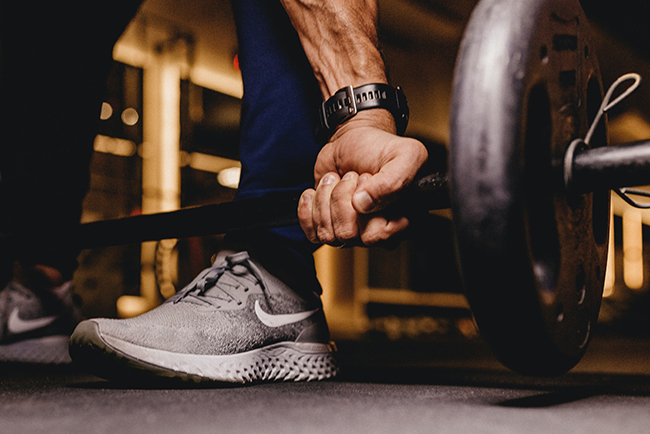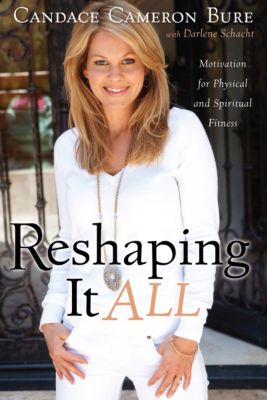
These health practices can allow a pastor to make the greatest impact for the gospel and lead his family well.
By Clayton King
At age 48, my life was turned inside out when my appendix burst. After emergency surgery, an infection led to sepsis, and I found myself back in the hospital. The next 10 weeks were the opposite of what my life had been like before. Ministry came to a halt. My energy levels plummeted to zero. My appetite disappeared. And I had plenty of time to think. I decided I never wanted to get that sick again. I was going to do what I could to get healthy.
And Lifeway Research’s 2022 Greatest Needs of Pastors study found I am not alone in my struggle with implementing helpful health practices. According to this research, 59% of pastors say they find it challenging to exercise consistently. And nearly half of pastors (49%) say eating right is a challenge. More than 2 in 5 (45%) say consistently resting is challenging for them in ministry.
With lots of time to read on my hands, I began learning about and implementing habits that would help me get healthy. This health journey involved me implementing 21 simple practices that have increased my energy, mental focus, physical stamina, and spiritual joy. You may not need to implement all of these right now, but I hope some of these are helpful to you on your health journey.
1. Listen to your body
My near-death experience was my wake-up call to pay attention to my weight, insomnia, stressors, schedule, habits, and hobbies. My body was communicating, but I was ignoring all the messages it was sending me. Now I’m listening.
2. Step on the scale
I didn’t realize I was 265 pounds until I was in the hospital. Truthfully, I knew I was too heavy, but I didn’t want to face it. I made excuses and told myself I could always drop 10 pounds anytime. But the scale judged me without emotion. Now I weigh myself daily for accountability and progress.
3. Simplify the situation
Appendicitis made things simple for me. I never wanted to be that sick again. The best way to achieve that outcome was to change my lifestyle for the sake of my future, my family, and my calling.
4. Stop excuses and self-pity
It was easy to feel sorry for myself when I was immobile in recovery. I could blame any number of culprits and justify my self-pity. But I made a choice. It may not all be my fault, but it’s all my responsibility.
5. Set a goal and make a plan
Goals are easy. Plans are hard. My goal was to lose 25 pounds in a year. My plan included exercise, calorie restriction, better sleep, better food, more fun, stress reduction, more honesty, and simple habit-forming behaviors.
“Goals are easy. Plans are hard.” — @Clayton_King Click To Tweet6. Eat more protein (eggs, steak, fish)
I began aiming for 80 grams of protein a day. Surprisingly this filled me up and gave me energy. My cravings for junk food slowly diminished. I also did the research and found meat is the most nutrient-rich source of nutrition on earth, with the highest bio-availability.
7. Eliminate sugar and processed foods
This is a goal for me. I’m not 100% there, but reducing things that come in a bag or a box with ingredients I can’t pronounce has impacted me for good. More fruits, berries, and nuts; less chips, crackers, and additives.
8. Eat salt
I eat half a teaspoon of Himalayan pink salt in the morning to help reduce cravings for junk food. (My body needs sodium but not from processed snacks.) This also increases energy, eliminates muscle cramps, makes digestion easier, and gives me electrolytes.
9. Enjoy more sunlight exposure
Exposure to sunlight (especially in the morning) releases Vitamin D, increases melatonin and serotonin, and sets your circadian rhythms. All of these things play a massive role in the most undervalued element of overall health—your quality of sleep.
10. Prioritize sufficient sleep
I was diagnosed with a sleeping disorder as a teenager and seldom got more than six hours of sleep a night. And this took a toll over the years. Lack of sleep is connected to obesity, diabetes, heart disease, early onset of dementia and Alzheimer’s, as well as increased stress, anxiety, depression, irritability, insulin resistance, and cognitive decline. I didn’t want any of these.
11. Respect your bedtime
I go to bed when I get sleepy, usually between 9:30 and –10 p.m. I try to follow the 3-2-1 rule. No food three hours before bed. No liquids two hours before bed. And no screens one hour before bed.
12. Maintain a morning routine
When I go to bed by 10 p.m., I’m naturally up at 5 a.m. (my natural circadian rhythm). I drink 20 ounces of water first. Then I will drink black coffee. I usually skip breakfast (a form of intermittent fasting and caloric restriction). But if I eat, it’s eggs and steak or a protein shake.
13. Prioritize going to the gym
No matter what, I’m going to the YMCA four to five days a week. I have to plan my days, travel, and meetings so I can get there. It’s the priority now. It’s a daily oasis that gives me dopamine, serotonin, and adrenaline. And as a bonus, I get to see friends.
14. Lift weights
Lifting weights is essential for weight loss, especially for a 50-year-old man like me. Calories continue to burn for hours afterward. Cardio was my default for decades. Now it’s dumbbells. I sleep twice as deeply when I’m lifting (and I crave more protein).
15. Use a sauna
This is my cheat code. Our YMCA has a steam sauna and dry sauna that I love. But I prefer infrared sauna for detox, deep sweat, heat shock proteins, muscle and soft tissue recovery, and joint health. Studies show that four to five sauna sessions per week are linked to a reduction of all-cause mortality and help with blood pressure, insulin resistance, heart rate variability, skin ailments, cholesterol, respiratory health, depression, anxiety, and sleep.
16. Drink mineral water
Lifting weights and sauna sessions deplete the body of sodium, magnesium, and potassium. Mineral water is a great way to replenish these (and helps you quit drinking soda and diet drinks). I drink Gerolsteiner daily. It has the highest mineral content of all sparkling waters.
17. Control portion sizes
I now eat less food at each meal. I seldom go back for seconds. And I finally started listening to my wife who’s always told me I don’t have to always clean my plate (and hers, too).
18. Take a cold water plunge
I take an ice-cold shower or I do a cold plunge almost daily. We leave our pool open all winter, and I jump in, breathe, and pray! There are numerous benefits to this, including reduced inflammation and increased testosterone/resilience. It also releases adrenaline, epinephrine, and norepinephrine. And it’s euphoric once your body adjusts (and it will).
19. Have fun
I now have an outlet for my mind to rest. As I’ve integrated more fun into my rhythms, I’m more creative, more patient, less irritable, and happier than I’ve ever been. I ride my motorcycle, watch movies, play board games with my family, and go to more concerts and ball games.
20. Embrace boredom
I sit by the fire. Walk barefoot in the grass. Read more books. Watch more sunrises. Observe the squirrels in our backyard. Pet our toy poodle. Turn off my phone. I embrace unhurried, unplanned space when it comes and let my mind wander.
Embrace unhurried, unplanned space when it comes and let your mind wander. Click To Tweet21. Check the results
I weigh myself daily. I track my sleep. If I intend to make the greatest impact for the gospel and lead my family well, these health practices are non-negotiable. By the power of the Holy Spirit, I’ll continue on my health journey.
For permission to republish this article, contact Marissa Postell Sullivan.

Clayton King
Clayton is an evangelist, pastor, and author of 18 books, including True Love Project, Grounded, and Reborn. He’s a minister in residence at Anderson University and Founder of Crossroads Camps and Conferences. He lives with his wife Sharie in Anderson, S.C., and has two sons, Jacob and Joseph.
This article is for general information only. It is not intended as medical advice and should not be relied upon as a substitute for professional consultation with a qualified healthcare provider familiar with your individual medical needs.












